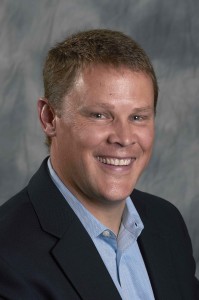Grove at the forefront of push for trauma-informed care
July 13, 2018
By Emily Christensen
In March 2018, Oprah Winfrey and 60 Minutes brought national attention to trauma-informed care, a treatment framework that focuses on a person’s experiences before attempting to change their behavior. At the center of that conversation was Wartburg alumnus Tim Grove ’94. As the chief clinical officer at SaintA, a child and family services provider in Milwaukee, Grove has used trauma-informed care in his work for more than a decade. Today, the organization is leading the charge to train others to do the same.
“The science is abundantly clear that the effects of exposing kids to unmitigated, overwhelming stress and fear is profound. The question becomes what will individuals, communities, and we as human beings do in response,” Grove said. “We can pretend it doesn’t exist and diminish it, or we can rally and say we have a call to respond.”
Traditionally, children with serious behavioral issues might be asked what is wrong with them; those who employ trauma-informed care would instead ask, “What happened to you?” Using a set of 10 questions that evaluates a person’s adverse childhood experiences, which includes everything from being regularly insulted and humiliated by an adult to physical and sexual assault, caregivers like Grove can determine what happened to a child before they try to “fix” their current behavior or condition. The higher a person scores on the ACE test, the more vulnerable they are to mental, physical, and social health issues.
“What’s at stake is nothing more or nothing less than our collective human capital. There is a growing body of literature in the health world that disease prevention and treatment have to prioritize this, too,” Grove said. “At some point we believe this will not be a problem-solving process that is confined to social work, it will be prioritized in the medical community and in the political community. We are already seeing some of that in Wisconsin where there has been a lot of activity to promote a trauma-informed Wisconsin.”
When case managers in the child-welfare program at SaintA have been trained to prioritize trauma-informed care, Grove said the teams have seen twice the permanency outcomes (adoption, placement with a relative, reunification with a parent) than the teams who weren’t. Anecdotally, Grove said he has heard “story after story” from law enforcement officers, physicians, judges, and educators who have inspired him to “dig down deeper than ever and really get into the work.”
Even Winfrey, in an interview promoting the show, called her work on this story “life-changing.”
“It is my hope that our story on trauma-informed care will not just be impactful but will be revolutionary. It certainly has caused a revolution in my own life. I was struck by the story because it reminded me of my own story growing up in Milwaukee,” she said on 60 Minutes Overtime.

